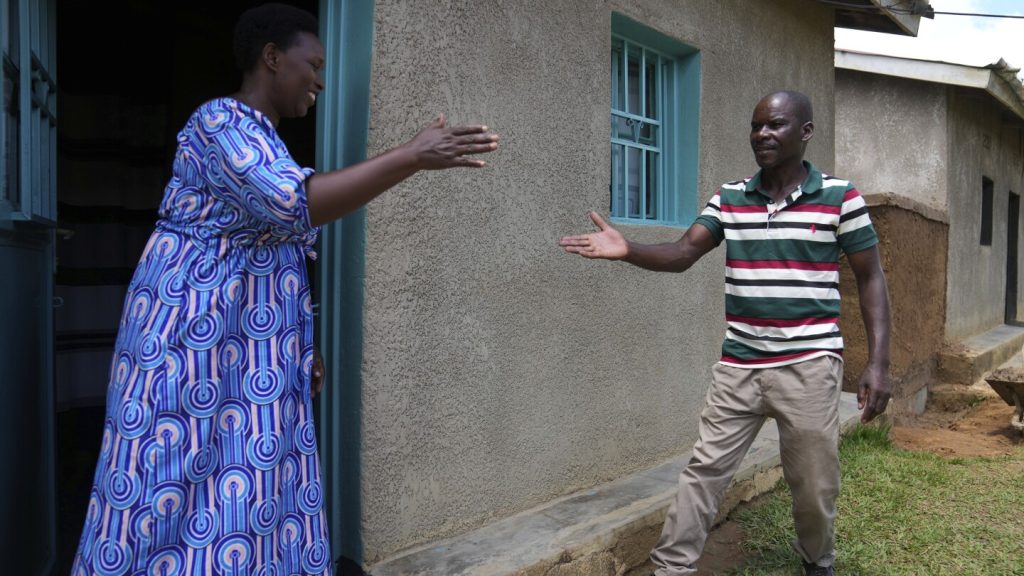BUGESERA, Rwanda (AP) — Anastasie Nyirabashyitsi and Jeanette Mukabyagaju, residents of a government-approved reconciliation village in Rwanda, have formed a deep friendship despite their differences. Nyirabashyitsi, a Hutu survivor, and Mukabyagaju, a Tutsi survivor who lost most of her family in the Rwandan genocide, have come together in peaceful coexistence. The women live in Mbyo Reconciliation Village, along with 380 other residents, many of whom are women. Projects within the village, such as a basket-weaving cooperative and a money saving program, have united the community and made it offensive to inquire about who is Hutu or Tutsi.
Nyirabashyitsi and Mukabyagaju are both witnesses to the terrible crimes committed during the genocide in 1994, which resulted in the deaths of an estimated 800,000 Tutsis. Nyirabashyitsi recalls seeing helpless Tutsis at roadblocks near the reconciliation village, while Mukabyagaju was forced to hide in a latrine for two months until Tutsi rebels rescued her. Despite their traumatic experiences, the women have built a strong bond based on trust and forgiveness. The friendship between Nyirabashyitsi and Mukabyagaju has been a source of hope for other residents, showing that reconciliation and unity can be achieved even in the aftermath of such a devastating event.
The village is run by Prison Fellowship Rwanda, a civic group that promotes practical reconciliation through hands-on activities. Women in the village have taken on leadership roles, with two of the three members of the dispute-resolution committee being women. These female leaders have been instrumental in resolving conflicts within the community, ranging from domestic disputes to communal disagreements. The activities of the women in the village serve as an example for future generations and promote unity and reconciliation on a practical level.
The residents of Mbyo Reconciliation Village have worked together to create a harmonious and close-knit community, where ethnic labels hold little meaning. The village was established in 2005 as part of wider reconciliation efforts by Prison Fellowship Rwanda, aiming to provide a space for genocide survivors to heal and interact with perpetrators. The Rwandan government has also promoted national unity among the country’s different ethnic groups and implemented strict laws to prosecute those who deny the genocide or promote genocide ideology. Rwanda’s efforts towards reconciliation can be seen in the structure of the reconciliation village, which mirrors that of an ordinary Rwandan village, with tin-roofed houses and a focus on community life.
The women of Mbyo Reconciliation Village engage in activities like basket weaving, which bring them together and allow for deep conversations that foster forgiveness and unity. More than just neighbors, Nyirabashyitsi and Mukabyagaju see each other as sisters, transcending ethnic labels and focusing instead on their shared humanity. The women have become a symbol of hope for the future of Rwanda, showing that peace and reconciliation are possible even in the wake of such a tragic history. Their friendship serves as a reminder of the importance of trust, forgiveness, and understanding in building a better future for all Rwandans.


